Finish Line Grants
Too often, financial emergencies like unexpected healthcare costs, childcare expenses, or car breakdowns prevent Mitchell students from completing their coursework and training. Finish Line Grants help students reach that milestone when facing these unforeseen challenges. Mitchell Finish Line Grants are a one time of up to $1,000 are available to Mitchell students who:
-
Are in good academic standing (minimum 2.0 GPA)
-
Have completed 50% of their work toward a degree or credential
-
Are faced with an unexpected financial emergency that involves:
- Auto Repairs
- Child Care
- Dependent Care
- Housing Assistance
- Accommodations for Individuals with Disabilities
- Utility Bills
- Health Care Referrals
- Assistance with Books and School Supplies
- Assistance with Tuition and Fees
What Types of Financial Emergencies are Covered by Finish Line Grants?
Examples of allowable expenditures for Finish Line Grants:
-
Transportation assistance may be provided to help the student get to class or other instructional locations. Examples are bus passes and gasoline assistance.
-
Auto Repairs. Auto repair payments that allow a participant to participate in educational and training activities are allowed. This includes repairs of an immediate need. Normal vehicle maintenance costs are not allowed. If a participant is repairing a personal vehicle, Finish Line Grant funds may be used to purchase the parts. Auto repair may not exceed the amount of the vehicle. If public transportation would be a more feasible option for the participant, Finish Line Grant funds will not be required.
-
Child Care. Childcare assistance for children ages 12 and under who reside in the home of the student are allowed if other resources are not available.
-
Dependent Care. Dependent care assistance may be utilized to help a participant meet their family care needs during participation in their educational activities. Finish Line Grant funds must not duplicate dependent care assistance available from another source.
-
Housing Assistance. Housing assistance allows students to maintain or obtain adequate or temporary shelter while participating in educational activities. Finish Line Grant funds may not pay for rental deposits or mortgage payments. Finish Line Grant funds must not duplicate housing assistance from another source.
-
Accommodations for Individuals with Disabilities. Finish Line Grant funds may be utilized to assist a student who needs accommodations to enable them to participate in their educational activities. Finish Line Grant funds must not duplicate funds provided by another source.
-
Utility Bills. Students may obtain assistance in paying for utility bills, including water, gas and electric bills. Finish Line Grant funds must not duplicate assistance from another source.
-
Referrals to Health Care. Students in need of medical or counseling services should be referred to other community medical resources if applicable. The referrals include DOT physicals, drug screens, required immunizations, dental, ophthalmologist, drug and alcohol counseling, mental health counseling, behavioral counseling, etc. Finish Line Grant funds must not duplicate medical assistance available from another source.
-
Assistance with Books and School Supplies. Grant funds may be utilized to assist a student with books, fees, school supplies, and other necessary items related to their education.
-
Assistance with Tuition and Fees. In the context that the student has an emergency financial challenge that has negatively impacted the student’s ability to pay for tuition and fees, then Finish Line Grant funds may be used to pay tuition and fees. However, it is not the intent of the grant program to function solely as a scholarship for a student’s tuition and fees.
Examples of not allowed expenditures for Finish Line Grants:
Finish Line Grant funds are not to be used for student expenses that are not allowed as supportive services including:
-
Titled or deeded items or when recovery of the expense is anticipated (e.g. rent or housing deposits, mortgage payments, property taxes, fines and late fees).
-
Purchase of vehicles.
-
Vehicle payments.
-
Business startup costs.
-
Internet or phone service (including a prepaid plan, minutes etc.).
Contact Student Support
StudentSupport@mitchellcc.edu
(704) 978-1312


